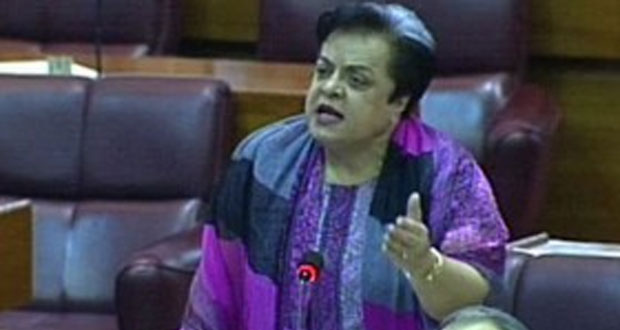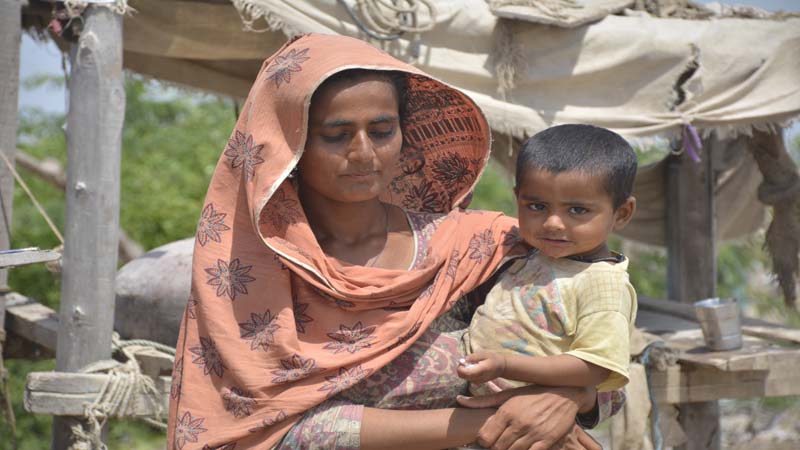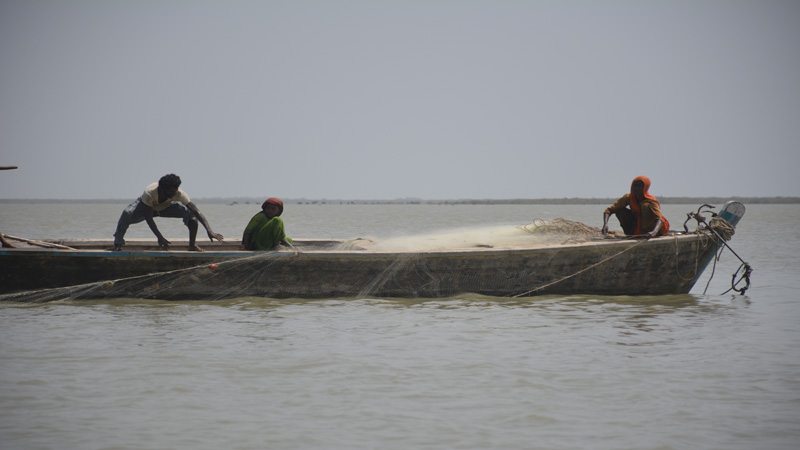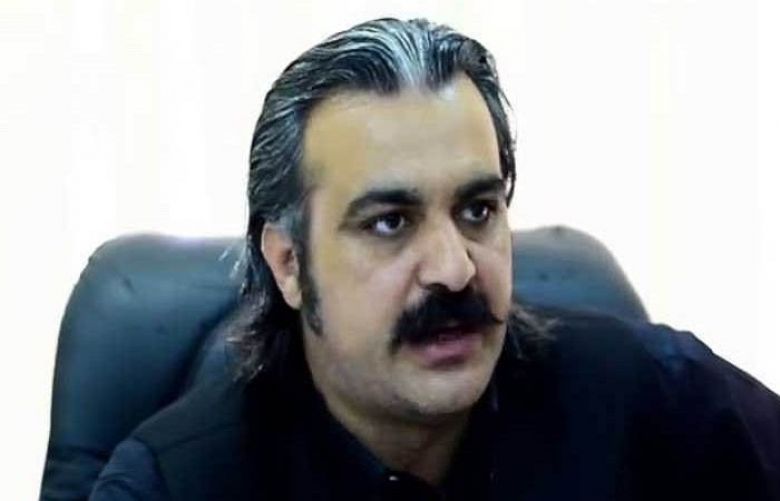Thatta: For almost a year now, Haleema Bibi, 24, has been spending most of her daytime in the creek near her small hamlet in Indus River delta. Every morning, she takes a small boat that can barely stay afloat in water, as its wood has deteriorated over the years, and hunts small fish using a net.
Haleema’s catch is mostly only enough to earn her between Rs150 and Rs200 a day.
Growing up, she had been trained neither to row a boat nor to use the fishing net. In a year’s span, however, she and several other women of Muhammad Rahim Mallah goth, a small fishermen hamlet comprises around 30 households, learnt these skills mostly on their own with occasional assistance from the elderly men of the village. These women were left with little choice but to pick up these tasks to provide for their families after their husbands went missing in the deep waters of Arabian Sea in December 2016.
Haleema recalls that the day after her husband Akbar and 24 other men of the village went missing she and other women formed search parties and went around looking for them, but to no avail. A couple of days, the villagers learnt through local newspapers that the men had ventured too far into the Arabian Sea and were arrested by Indian authorities for ‘crossing over into the enemy waters’.
There has been no update on the whereabouts of these 25 fishermen ever since.
The only men who remain at Muhammad Rahim Mallah are too old and frail for the task. Muhammad Achar, one such elderly residents of the goth, watches over his grand children in the absence of his daughter-in-law who spends the day in the creek to provide rations for the family.
Speaking to this scribe, Haleema says her life has become miserable after my husband’s arrest. She says her daily catch is barely enough to feed her four children and elderly parents-in-law – other women who spend the day with her in the creek node their head in agreement.
Women in many other Goths of the deltaic region in Thatha district find themselves in similar situation, according to the Pakistan Fisherfolk Forum (PFF), an NGO working for the betterment of fishing communities in Sindh.
The PFF’s data shows that until June 2017, 152 fishermen from Sindh remain incarcerated in various Indian prisons for unknowingly entering Indian waters. Most of these fishermen belong to coastal villages of Karachi, Thatta and Badin districts. The fate of fishermen on the other side of the international border isn’t much different. PFF has recorded at least 530 cases of Indian fishermen languishing in Pakistani jails for similar reasons.
The scale of the problem becomes visible from stories of arrests by Indian authorities narrated by almost every other elderly man in Muhammad Rahim Mallah goth.
“There is no border in the sea and sometimes fishermen cross over to the other side. Navy officials are quick to catch these ‘suspects’ but the authorities don’t show similar enthusiasm in investigating these cases. The result is that these innocent fishermen keep languishing in jails,” says Gulab Shah of PFF.
The two navies don’t even spare these fishermen during times of disasters. In 1999, a deadly tropical cyclone known as ‘02A’ had hit Mumbai. Locals at Rehri settlement in Karachi recall that Indian Navy arrested fishermen who had lost their way in water during the cyclone. Three of them remain under arrest. “Sometimes the families receive calls or letters from them, but Indian authorities are not releasing them from captivity,” says Kamal Shah, a resident of Ibhrahim Hyderi village. Locals also complain that even in instances where the authorities release fishermen, their boats are not returned to them.
The families of these fishermen complain that the government has never taken interest in solving their plight.
“The families of the arrested fishermen are in miserable conditions. We have no idea about the well-being of our relatives, but the most painful thing is that our [Pakistani] government is doing anything for the release of its citizens,” says Muhammad Hussain, a resident of Muhammad Rahim Mallah. Hussain’s son Sajjad, 20, was among the 25 fishermen arrested last December.
So far, the only way fishermen held for crossing over to the other side have been released by both countries is as part of ‘goodwill gestures’, whenever there is a thaw in bilateral relations.
Gulab Shah suggests that one way of preventing these incidents and the accompanying suffering for fishing communities is to declare a buffer zone of 10 nautical miles on either side of the sea border. “Fishermen from both sides may be allowed to be in the buffer zone without any repercussions,” he says. Regardless, he adds, there is no justification for keeping innocent fishermen incarcerated for years. “Both countries must ensure that cases of fishermen who unknowingly cross over are disposed off on priority so that they are released immediately,” he says.
The role of environmental degradation
Muhammad Rahim Mallah is part of a network of villages in the Indus River delta. It is the fifth largest delta in the world spread over 29,524 square kilometers between 17 creeks – Sir Creek in the east and Karachi’s Gizri Creek in the west.
Not too long ago, most of the deltaic region was fertile and locals grew crops like red rice, sugarcane, and wheat, and tended herds of sheep, goats and cows. The Kharai buffalo was a famous breed for milk and almost everyone had one in their homes.
But diversion of upstream water due to construction of dams and barrages caused the delta to go dry. This led to seawater flowing upstream and destroying fertile lands. Farmers became fishermen. But as the deltaic waters ran out of fish, the locals started going into the deep sea for fishing. That is when their interaction with naval authorities as well as the ensuring plight started.
Published in Daily Times, October 24th 2017.














